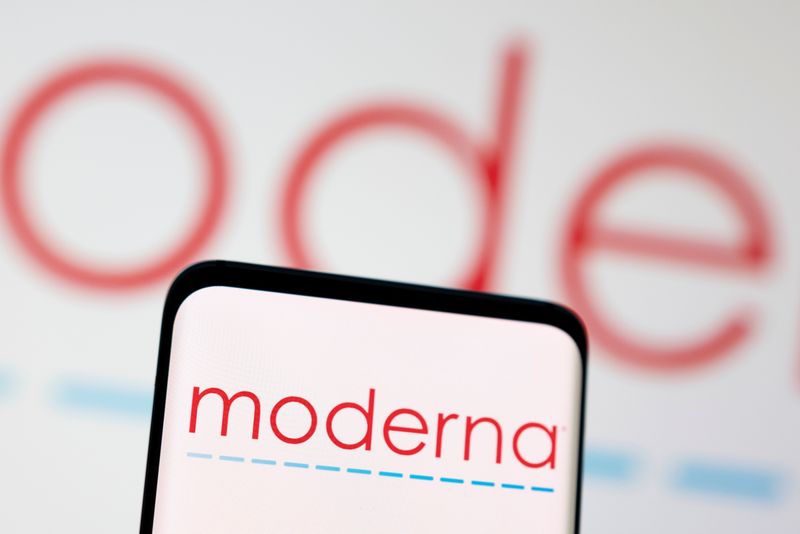By Patrick Wingrove
(Reuters) -Moderna on Thursday reported quarterly revenue that beat Wall Street estimates but came in dramatically lower than the previous year when demand for COVID-19 vaccines was higher.
Sales of Moderna’s COVID-19 shot Spikevax, its only marketed product, dropped 91% from the previous year to $167 million for the quarter but surpassed analysts’ expectations of $97.5 million.
The Cambridge, Massachusetts-based company reaffirmed that it expects to receive approval from regulators for its respiratory syncytial virus (RSV) vaccine in time for it to be included in this fall's U.S. vaccine campaign.
The vaccine maker is set to enter a market for RSV shots where Pfizer (NYSE:PFE) and GSK are already battling it out for share. GSK's Arexvy currently holds two-thirds of the new RSV vaccine market.
Moderna (NASDAQ:MRNA) also posted a smaller-than-expected loss of $3.07 per share. Analysts had expected a quarterly loss of $3.58 a share, according to LSEG data.
Shares of Moderna were down 1.5% in premarket trading.
"We're encouraged by the performance but recognize it's a small percentage of our overall year because 90% of our revenue will come in the second half of the year," said Moderna Chief Financial Officer James Mock.
Moderna reaffirmed its 2024 sales forecast of $4 billion, the lowest figure for annual revenue since its COVID vaccine got U.S. emergency authorization in late 2020.
Analysts on average expect Moderna's COVID shot to bring in $3.73 billion in 2024 and for its RSV vaccine to make $166.67 million. They estimate that the company will generate $4.18 billion in 2024 sales.
First-quarter revenue included $100 million in U.S. sales and $67 million from the rest of the world, which was mostly driven by markets in Latin America, Mock said.
The company has been banking on its experimental shots including for RSV, influenza and cancer to make up for declining COVID revenue.
Moderna said it intended to file for approval of its flu vaccine with regulators this year.
Cost of sales for the quarter totaled $96 million, including manufacturing wind down costs of $27 million, it said.

The company last September said it was in talks with its partners that fill vials and syringes with its messenger RNA-based COVID vaccines globally to downsize production.
"We've mostly completed that resizing but we built for something that can scale up to $8-10 billion dollars in sales, so there will be some amount of unutilized capacity throughout the year," said Mock.